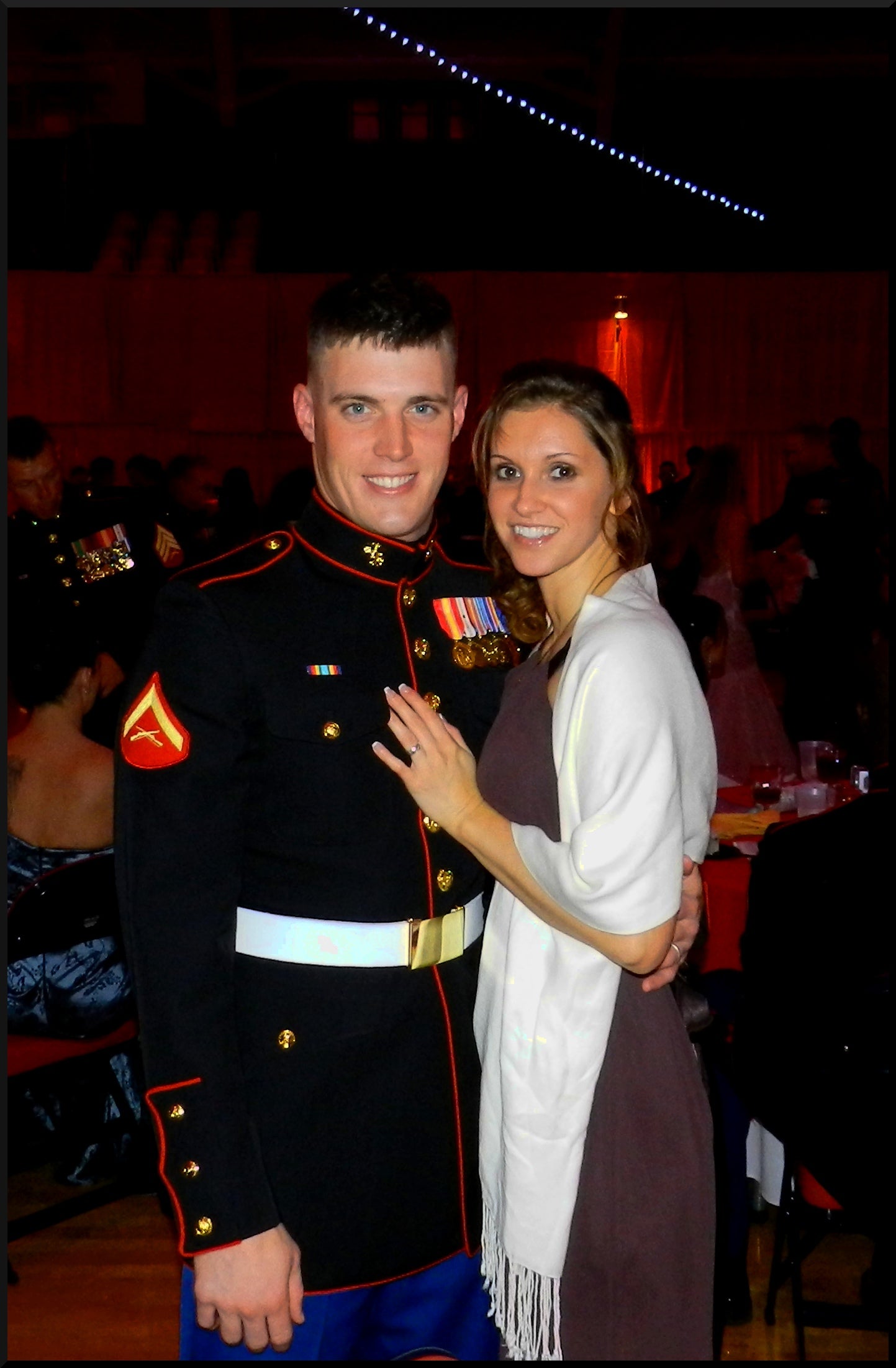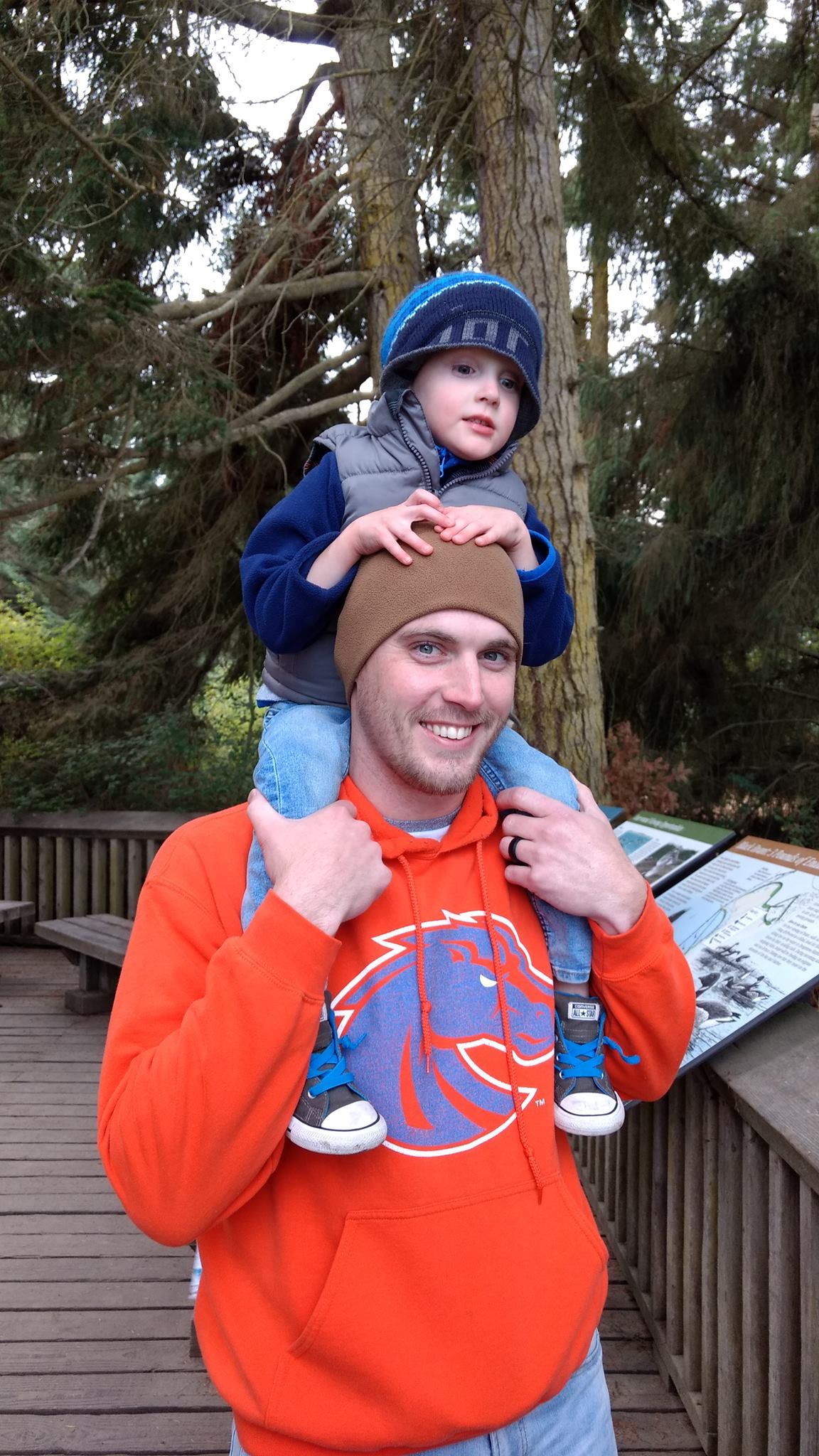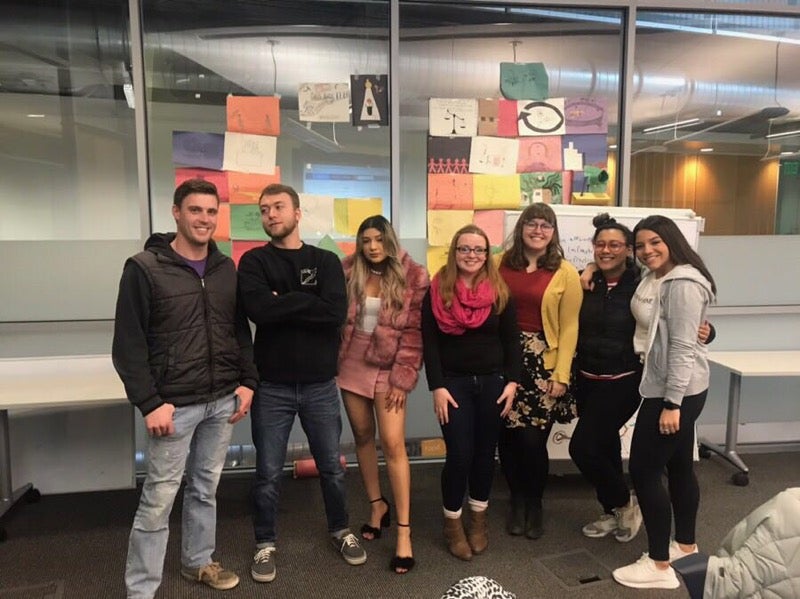
“I would suggest to any Veteran who is returning to school to not be afraid to seek help.”
Ben Adams- Political Science Major
I joined the Marine Corps when I was nineteen. Who doesn’t want to join the “world’s greatest gun club,” right? I wanted to get out there and make a difference in the world, but I wasn’t sure how.
I spent a fair amount of my childhood in the post-Soviet Bloc and this gave me a great appreciation not only for what we have here as Americans, but what America has done for so much of the world. The pride I held and still hold for service to my country is significant. I wanted to do something positive with my life. Something that mattered. My first unit was an infantry battalion, or as the grunts liked to call it “the real Marine Corps.” It sure was for me, and I loved being a part of it. I was assigned to an infantry battalion in North Carolina, and within the year we were deployed as an amphibious reaction force.
I deployed twice to Afghanistan, with my second deployment being only 10 months after my first. I was part of the command element conducting combat operations, and the responsibility that was entrusted in me was significant. I filled my role with honor and distinction and was able to reenlist for another four years.

Upon my return to the US, I moved to the Marine Corps air station in Miramar, California. It was then that my body and mind betrayed me. My mind would immediately go to default at the slightest inkling of pressure or uncertainty. My body would receive what my mind was telling it and would respond accordingly. This left me with night terrors, cold sweats, and I was highly reactive both physically and mentally to anything outside of my immediate control. I could no longer distinguish between when I was safe or not. My mind had completely melted down, and my body was constantly lying to me.
I was diagnosed with severe post-traumatic stress disorder and depression. I was told that my ability to absorb information was at the same level as a second-grader. I hadn’t lost confidence in my abilities to survive, but the clarity I had once had on reality was now blurred. Even though everything in me was screaming, “you’re not safe,” or “watch your six,” or “don’t close your eyes or someone will slit your throat.” I was simultaneously being told by my family, friends, and doctors that this was a “safe place” and that San Diego may have had a gang problem but was not known for their use of roadside bombs.
I was able to get treatment started while still in the Corps, but once it became apparent that I would not be able to get back into the fight, I opted for medical retirement. It was difficult for me because no one wants to feel like they have mental health problems, especially when they should be at the pinnacle of living their sharpest life.
I started at Boise State within a month of leaving the Marine Corps. Transitioning from military life to civilian life was rough, to say the least. I was transitioning between two worlds, and crippling anxiety made social interaction nearly impossible. My perception of the world had changed once again, and the darker side of humanity was at the forefront of my mind. How was I supposed to trust anyone?
I had a hard time going to class, sitting through class and even trusting my own thoughts. I was reclusive and rarely got past my anxiety to attend classes, often demonstrating physical responses to my state of mind.
It was through extensive treatment from a mental health provider, the Wyakin Foundation, the Veteran Services, and most recently the Educational Access Center that I have been able to begin retaking my life.

Being a student at Boise State has helped me to connect with people again. I joined the Political Science Association, which allows Boise State students to become politically involved in the community, and I now spend my time advocating and engaging with elected officials about bringing our troops home from wars that have not been voted on by congress. I’ve even had an op-ed published in the Idaho State Journal, Idaho Press and the Washington Examiner. More importantly, I have tried to focus on being a good husband and father.

I would suggest to any Veteran who is returning to school to not be afraid to seek help. I feel it’s important for returning Veterans to reconnect with people and not be afraid to say what they think. It’s not an easy thing to do, but being open with who you are allows others to see you in a new light, and naturally puts them in a more open position. My journey to health is still in progress. My PTSD has not gone away, but I am able to better cope with the difficulties that come with it. Turning pain into purpose is not an instantaneous action, it’s a constant effort.
Ben Adams- Political Science Major